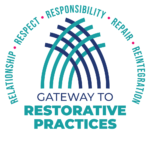
“Helicopter parents can be identified by their tendency to hover close to their child, ready to come to the rescue at the first sign of difficulty or disappointment,” explains Indiana University psychologist, Chris Meno. (1)
She counsels “over-parented” college students on gaining independence. “Helicopter parents can be identified by their tendency to hover close to their child, ready to come to the rescue at the first sign of difficulty or disappointment.” (1)
Take the Helicopter Parent Quiz
Here’s a quiz to help determine if you tend to allow your child to be responsible for her actions or if you lean towards helicopter parenting. I’ve used the term “child,” but you can also substitute the word child for “teen.”
| Question | Never or Rarely | Sometimes | Usually |
| |||
| |||
| |||
| |||
| |||
| |||
| |||
| |||
| |||
| |||
| |||
| |||
| |||
| |||
| |||
| |||
| |||
| |||
| |||
|
Answer Key:
Answer each question with rarely or never; sometimes; or usually. I’m looking for 5 more questions to add to the “quiz.” If you have a question or two to add, please post a comment. Thanks.
If you typically answered “never or rarely,” you tend to allow your child to be responsible for his actions.
If you generally answered “sometimes,” you often allow your child to be responsible for her actions, but sometimes you rescue your child.
If you answered “usually” to the majority of the questions, you regularly rescue your child and take responsibility for him. This is referred to as “helicopter parenting.”
Sources:
- “Helicopter parents” stir up anxiety, depression, Indiana University, IU Newsroom, newsinfo.iu.edu
- Image: Stock.XCHNG www.sxc.hu/. helicopter-3-1032378-m

